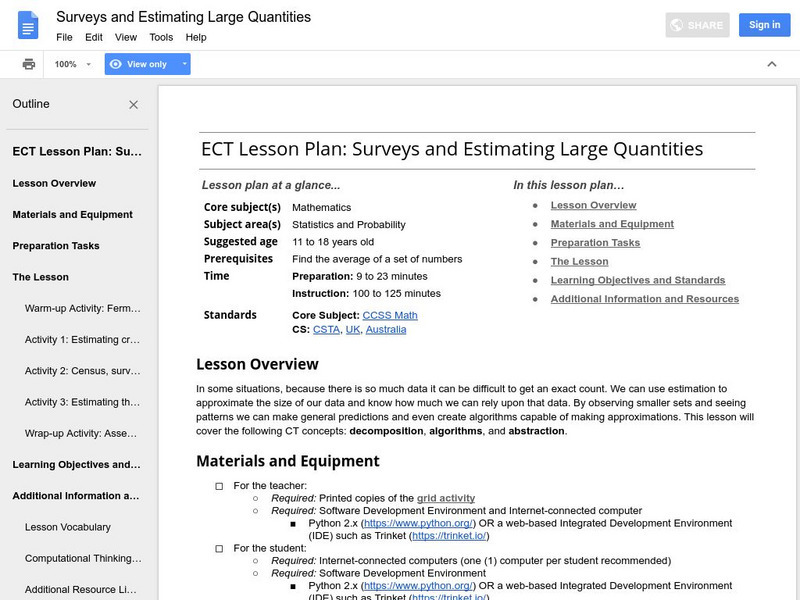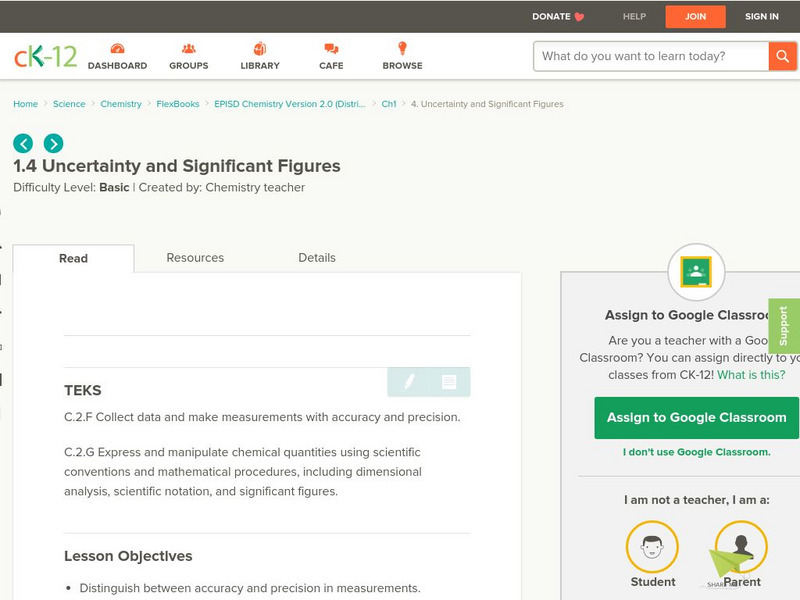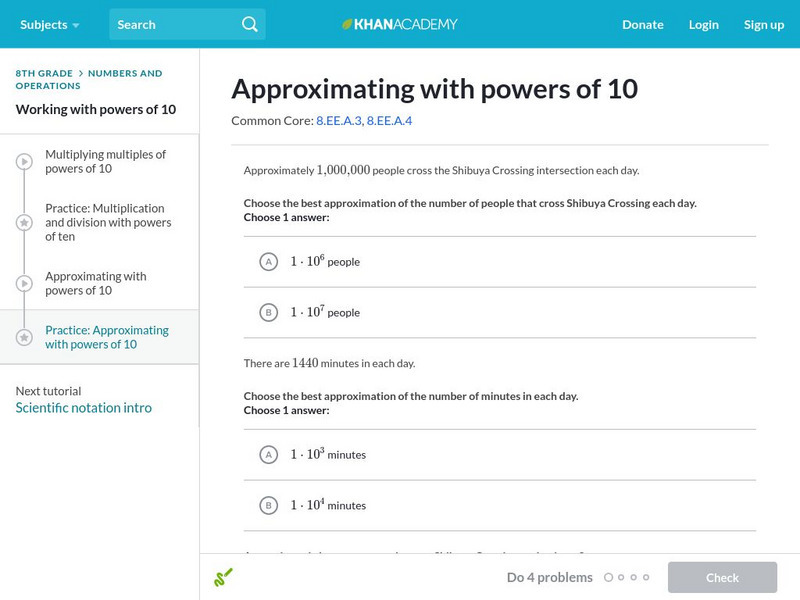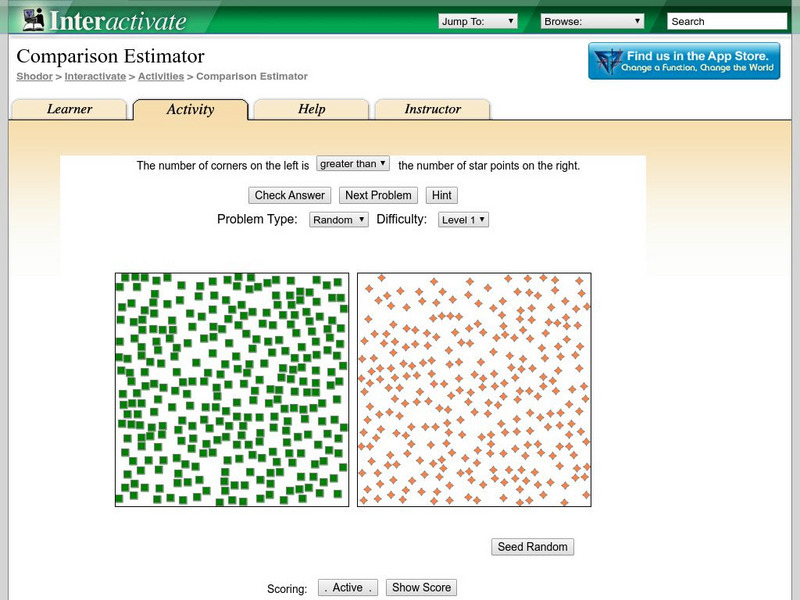Curated OER
Applied Science-Science and Math (2A) Post Lab
Second graders create a graph about TV watching. For this bar graph lesson, 2nd graders make a hypothesis about how much TV 2nd graders watch per week. They record their TV watching for a week and bring it to school to create a class...
Curated OER
Measuring Different Surfaces
Fourth graders investigate measurement of linear and curved surfaces. In this math instructional activity, 4th graders discuss how to measure curved surfaces and work with a partner to measure various curved surfaces.
Curated OER
Wings and Othe Things
Learners work in groups that are engaged in different activities at different times. They watch the video "Madagascar" and collect data pertaining to the Fish Eagle's arm spam. They work together to perform mathematical computations...
Curated OER
Measuring Angles
Third graders describe an amount of turn from a particular position to another using the 'circular' benchmarks of 0, ++, ++, ++, and full turn. Estimation language such as 'just about', 'between', 'not quite', 'just over', and similar...
Curated OER
Jobs and Salaries
In this economics worksheet, high schoolers look for the budgets and go through the practical activities of maintaining a monthly expense sheet.
Curated OER
Buying My First Car
Students pretend they are about to buy their first new car. They must do all the calculations necessary to estimate the cost of purchasing the car. They see that the math they learn in school really does have real-life applications.
Curated OER
Angles: Angles, Angles, Everywhere
Middle schoolers estimate and accurately measure the size of angles communicate with the appropriate geometric terms and symbols to describe and name angles, lines, line segments, rays
Curated OER
How Close Is Our Estimate?
Fifth graders estimate perimeter, area, and volume. They measure perimeter and area using nonstandard units of measurement. Students add and subtract non-standard units of measurement. They add mixed numbers and simplify the sum.
Google
Google for Education: Surveys and Estimating Large Quantities
Students use estimation to approximate the size of a large set of data. By observing smaller sets and seeing patterns they make general predictions and even create algorithms capable of making approximations.
PBS
Pbs Kids Afterschool Adventure!: Operation: Numbers 1 10 Activity Plan
In this week's Afterschool Adventure, children will explore simple math activities using the numbers one through ten. Children will represent numbers in different ways, such as drawing quantities; writing numerals; and using number...
CK-12 Foundation
Ck 12: Uncertainty in Measurements
[Free Registration/Login may be required to access all resource tools.] In the following online lesson students will learn to distinguish between accuracy and precision in measurements and to also calculate the percent error of a...
PBS
Pbs Kids: Peg + Cat: Chickens in Space
In this interactive, practice estimating size and quantity to send 100 chickens into space.
Khan Academy
Khan Academy: Approximating With Powers of 10
Practice comparing two real-world quantities by approximating them using rounding and powers of 10. Students receive immediate feedback and have the opportunity to try questions repeatedly, watch a video, or receive hints.
Shodor Education Foundation
Shodor Interactivate: Lesson: Estimation
This lesson plan is designed to help students learn to make estimates. Resources are linked to help support the teacher and offer exploration and practice to students.
Shodor Education Foundation
Shodor Interactivate: Comparison Estimator
This activity allows the user to compare to quantities by estimating. Students use three types of estimations: counting, length, and area. An interactive activity and teacher resources are included.














